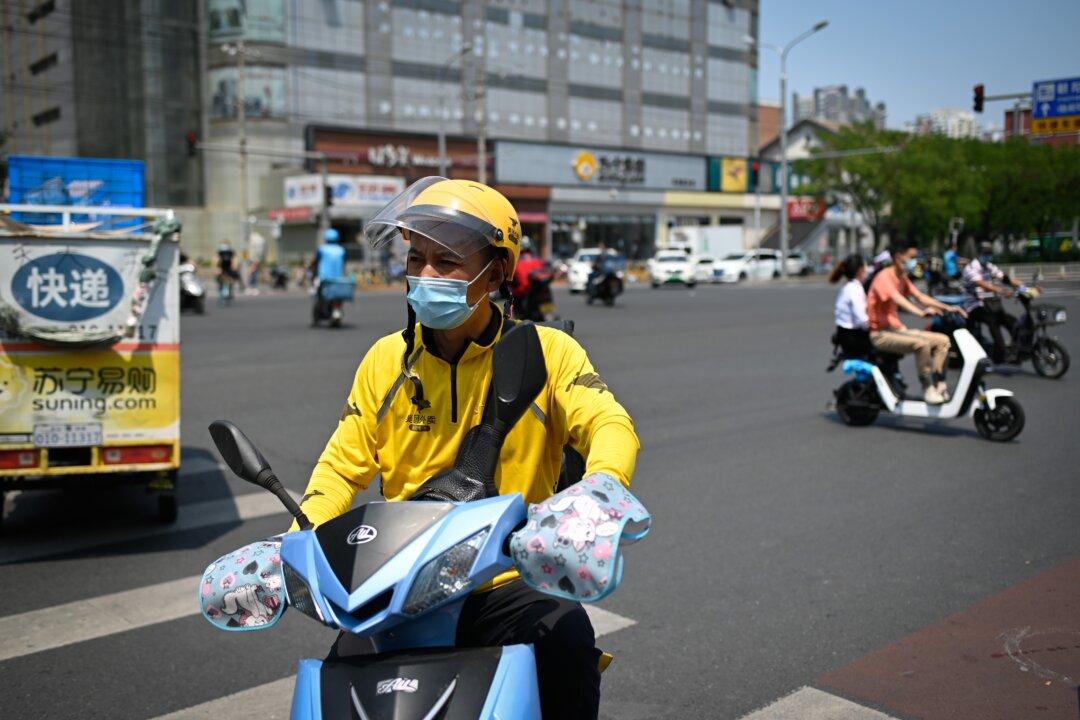A Chinese food delivery company has been accused of unfairly treating workers to Australia.
On Feb. 23, Wang Zhuoying, a delivery rider of food delivery company Hungry Panda, spent her 40th birthday together with fellow delivery workers asking for fairness from her employer.




